But in recent years, supposedly smarter, more practical solutions have outstripped it. Anyone who still builds an integrated amplifier today has to think about a certain added value. A British booth operator put it in a nutshell at the HIGH END 2023: “An integrated amplifier without additional benefits is a hard sell these days.”
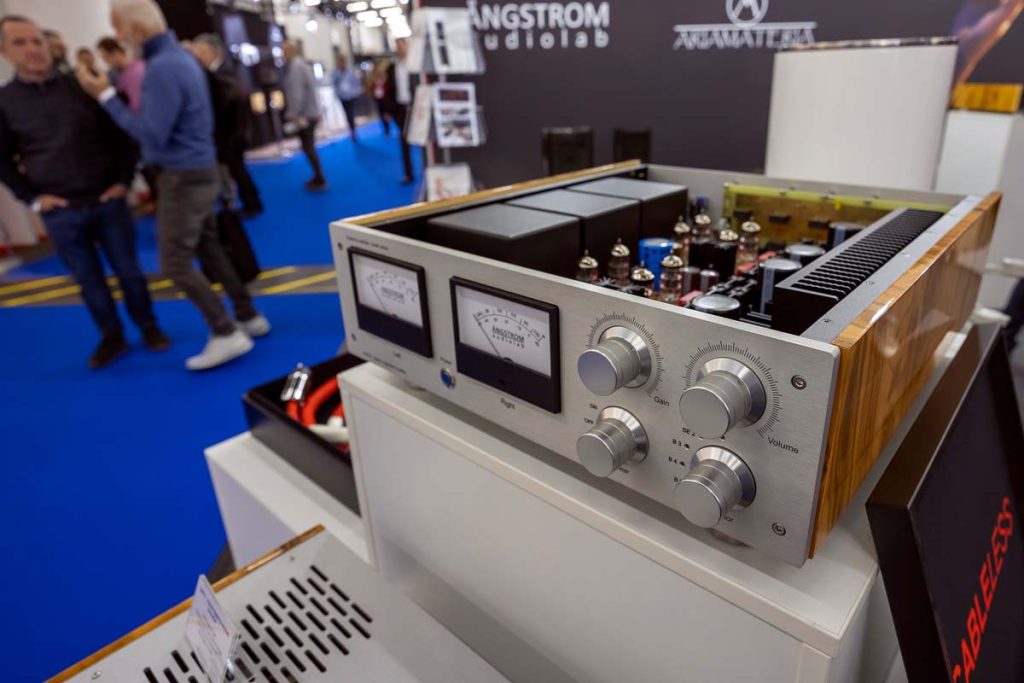
Devices such as the Mission 778X, which was already released at the end of 2022, are a good example of this. The compact integrated amplifier is not content with bringing signals from high-level sources to a level that can also drive loudspeakers and also straighten out the frequency curve of (MM) pickups – it also gets along with Bluetooth suppliers such as smartphones and also has a contemporary DAC built in, the ESS ES9018K2M, which can decode digital signals with a sampling rate of up to 384 kHz (PCM) and DSD256. The control hub idea of yesteryear is being rethought. The Mission also reflects two other trends: It comes in a postmodern retro design, is very consciously reminiscent of its ancestor 778 (without the “X”), and is the first amplifier for the parent company in years that they have developed themselves.
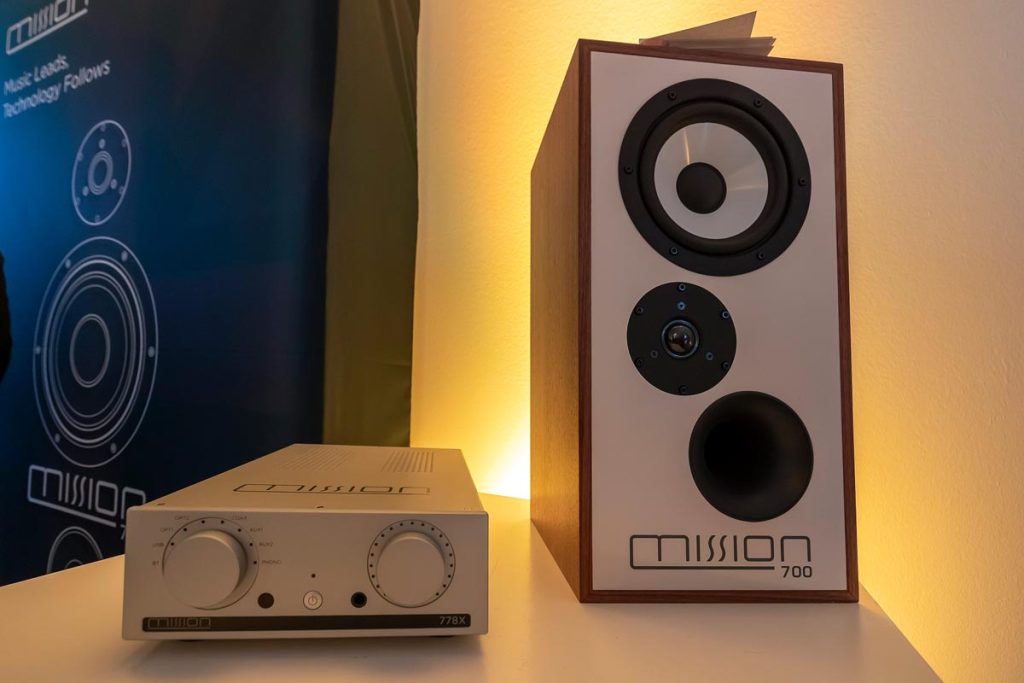
Of course, others do that, too. Many loudspeaker manufacturers now have amplifiers under their own label in their product range again and comment on this commitment with the plausible argument that they know best how to optimally drive their own speakers.
Omnipresent At High End 2023: All-In-One Systems
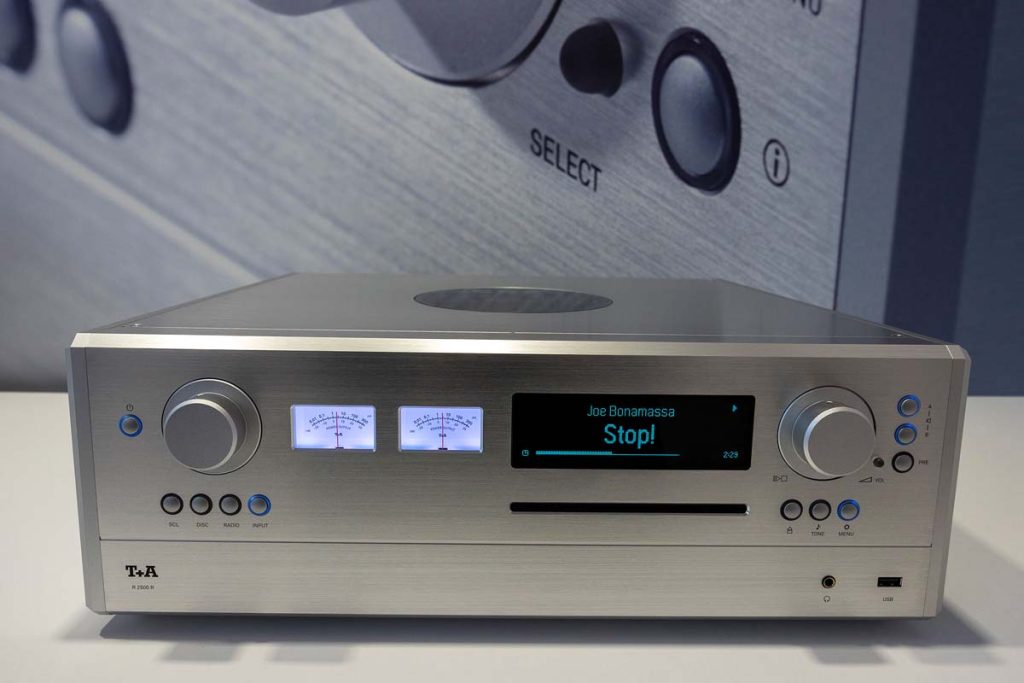
Amplification alone, however, is usually no longer enough. Many manufacturers are responding to the desire of many music enthusiasts to have all their electronics gathered in a single enclosure with streaming amplifiers like the Forté 3 from Axxess. This debut component of the new brand from Audio Group Denmark already forms a complete setup with a pair of speakers, just as you would want in your living room.
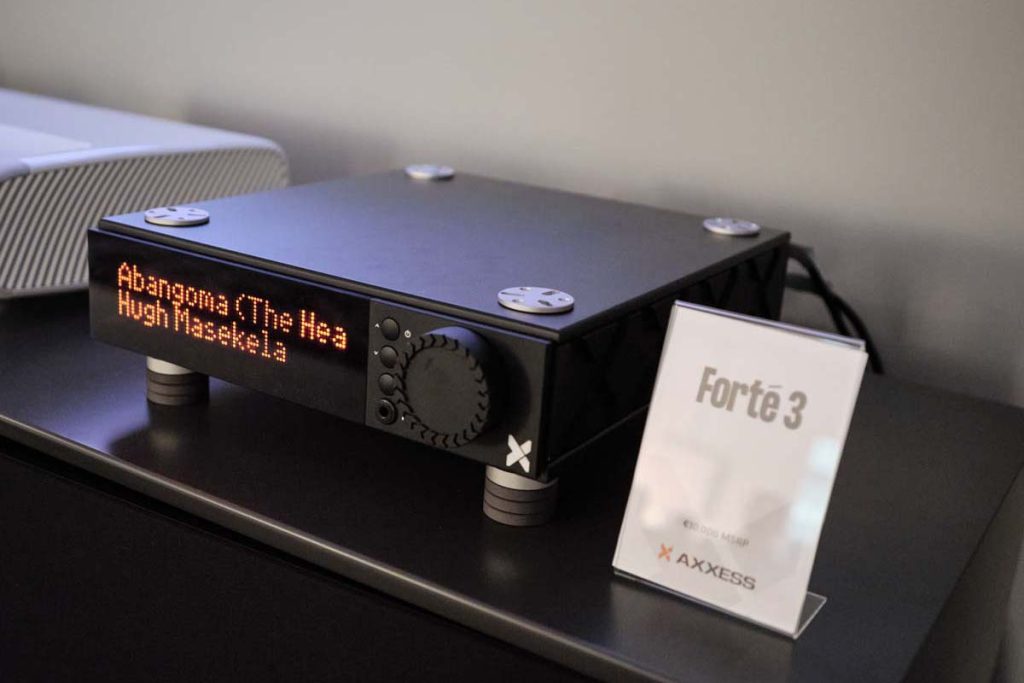
Nubert takes a slightly different approach to the idea of the control center: The nuControl X does without the power section and thus offers more room for maneuver when setting up the setup – after all, active speakers have little use for speaker terminals. For proponents of passive transducers, Nubert offers suitable nuPower power amplifiers. The Control X is thus a fully integrated front end that can communicate with all common streaming services as well as Bluetooth devices. It accepts external line-level sources just as readily as turntables, converts digital signals internally and regulates the volume – all control functions in one box.
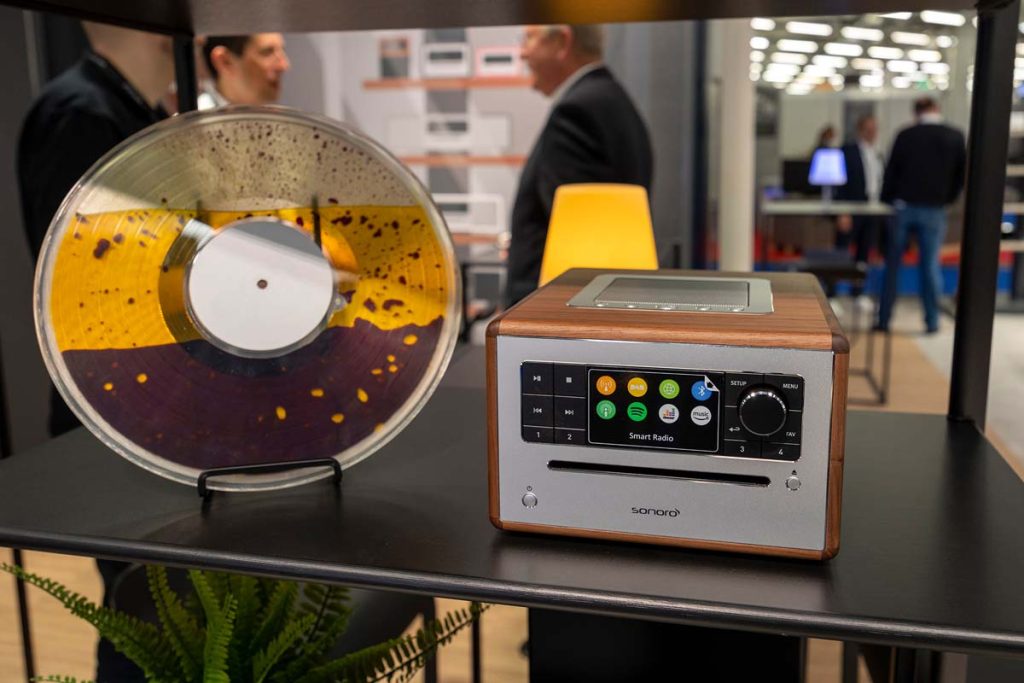
Old School Remains Relevant
Some, however, deliberately go against the grain. Amplifier guru Rolf Gemein, for example, whose Symphonic Line models have always followed a strict no-frills approach and are bred only for the best sound. At the trade show, he and his daughter Marion presented a new power amplifier of the “heavy and huge” variety at their booth, which should be well appreciated by all those who have to drive capricious loudspeakers with nasty impedance dips and unimpressive sensitivity. The well-known “La Musica” integrated amplifier, which Gemein now also offers in a “2023 Edition,” is one size smaller.
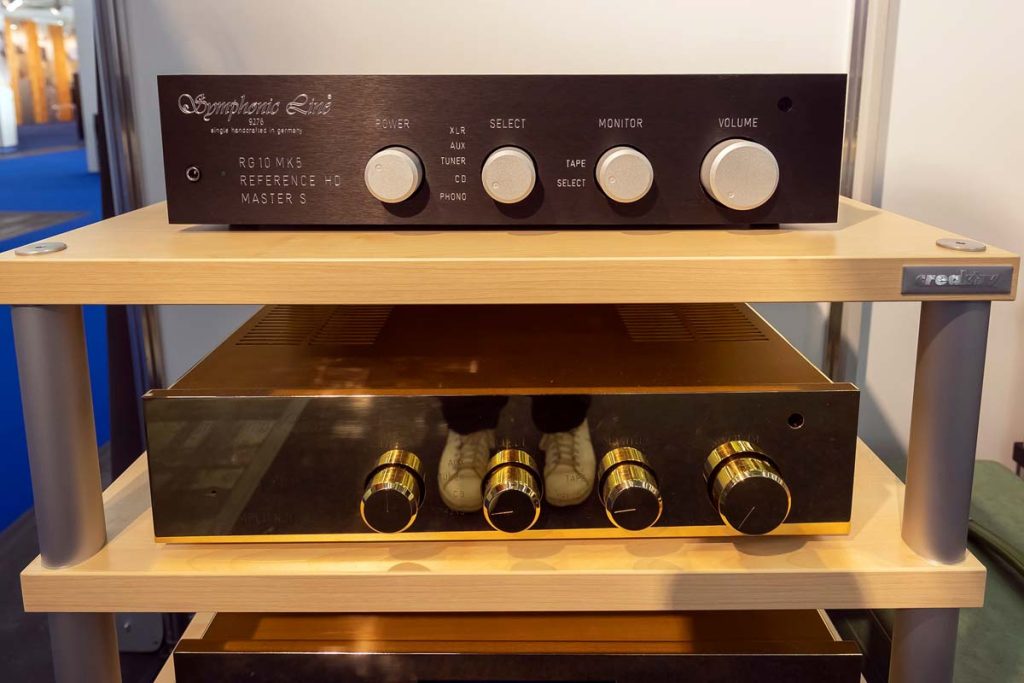
Those who have less-extreme parameters to operate in can confidently indulge in the not entirely new fashion of miniaturization and, for example, reach into the shelves of the turntable specialist Pro-Ject, whose Stereo Box DS3 has recently appeared. At first glance, it's a clearly “shrunken” integrated amplifier in the outer dimensions, which despite its very compact dimensions offers three line inputs, understands MM and MC cartridges equally and also speaks Bluetooth. It must be clear that the reduction in external dimensions (and weight) is only made possible by switching amplifier technology. However, these Class-D designs have long since arrived in sonic realms where even audiophile minds feel at home.
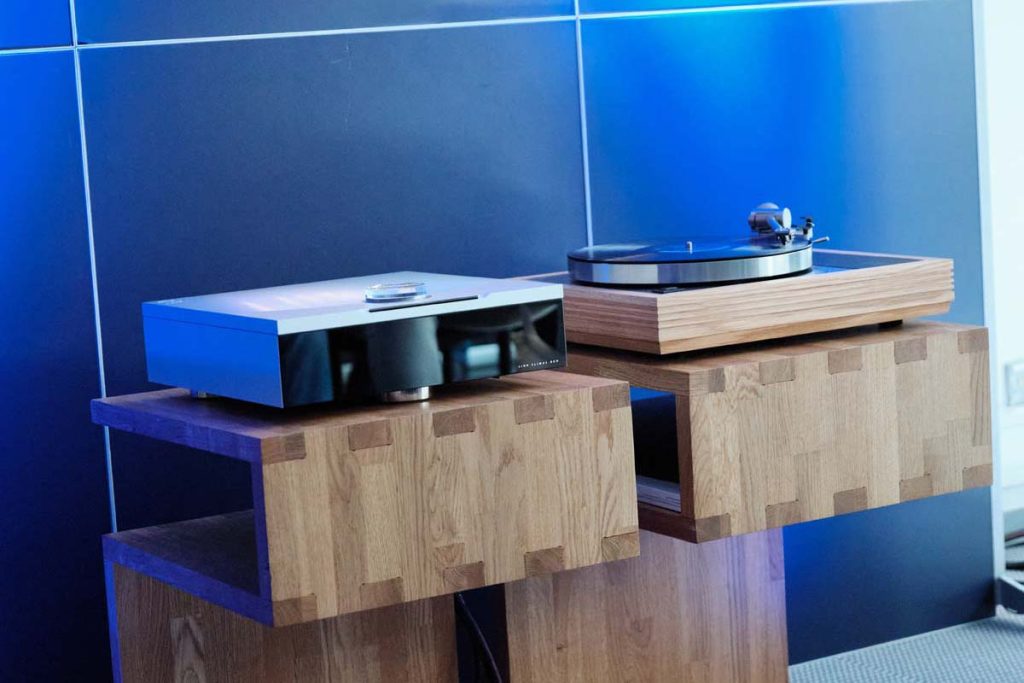
Tubes Can’t Be Missing
For a pure bath in the euphony and the conscious renunciation of the last bit of tonal truth, tube amplifiers are still recommended – what can be gotten out of the concept could be seen and often also heard at various booths. The conclusion, as banal as it is pleasing, is that the tube revival continues, and classic 300B designs form the basis for a myriad of integrated amplifiers and power amplifiers.
Anyone who likes to tune and fine-tune their system, and who is looking for ways to subtly improve the sound and bring it closer to their own taste, will find a sheer gigantic playground in tube technology, even and especially in the year 2023. Especially since the cult manufacturer Western Electric now manufactures the legendary 300B tube again. Your typical inexpensive tube amp, often of Chinese provenance, can be made into a high-end high-flyer by implanting a new “heart” and rolling the tubes.
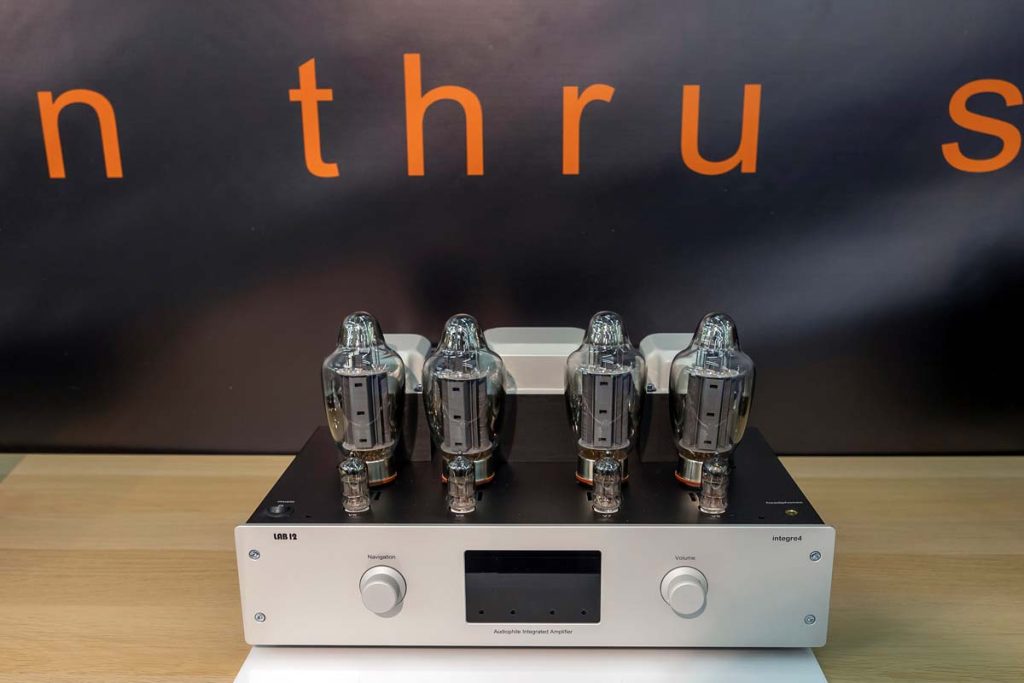
The influence the amplifier can have on the sound of a stereo setup could be heard at Dan D’Agostino, whose amplifiers in steampunk style, with their large pointer instruments and their recently optional copper-colored trim are more eye-catching than ever. The old master personally demonstrated his creations in Munich, providing insights into the heyday of high-end audio, when D’Agostino competed with fellow developers such as John Curl and Nelson Pass for the most efficient circuits, the best current stability, and the most present sound.
D’Agostino’s big Momentum models are monuments, so heavy that a human alone could not practically move them from their spot. Which prompted the over-excited booth moderator to remark that whoever could carry away the “debris” themselves and without help should be allowed to keep it. By all accounts, no one tried it out.
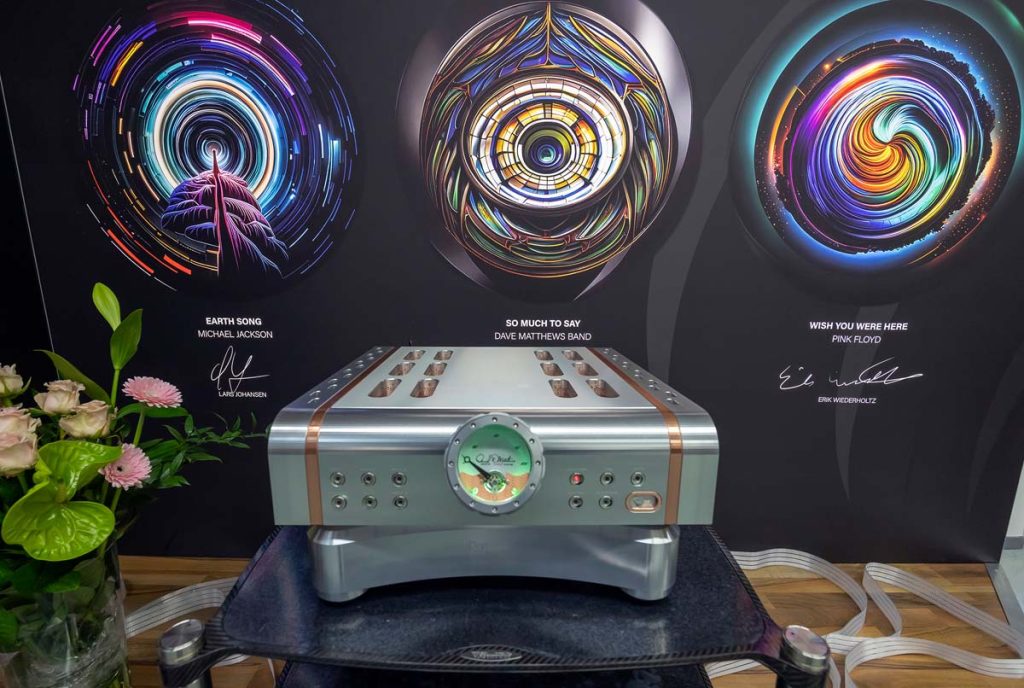
Modern Tech In Retro Garb
It’s all in the eye, so I stuck around the HiFi Rose booth for a while, playing with the many knobs, toggle switches, and especially the gear-mounted volume control of the RA180 integrated amplifier, which can handle up to 1,100 watts on its phalanx of output terminals, has a separate subwoofer output, and looks like it came straight out of a 1960s recording studio. An amazing statement for a company that otherwise is all about ultra-modern streamers.
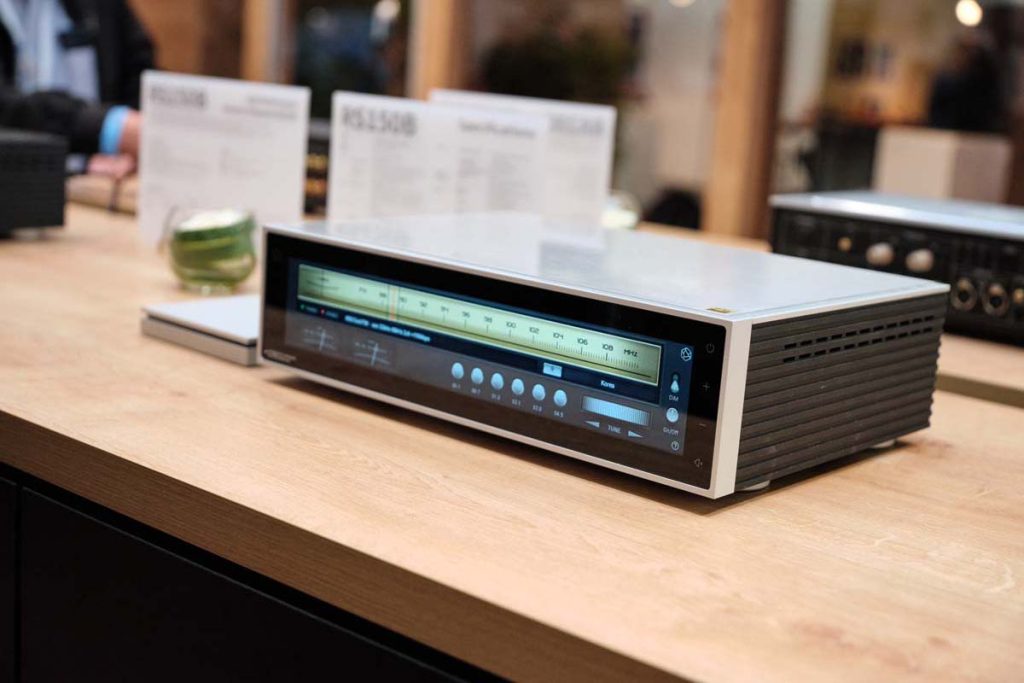
Studio design also traditionally dominates at SPL, where its amplifiers are now also available in a smaller size, which significantly increases the “wife acceptance factor” or the living room suitability. Experience shows that SPL components sound as good as they look.
It’s a shame that neither Marantz nor Denon were present at the HIGH END 2023. The new pre/power amp combination from Marantz would have been especially nice to hear in action. One could console oneself at the Esoteric/TEAC booth, where Jasper Bol and his crew had set up a strikingly coherent-sounding demonstration system. The genes of the high-quality Esoteric components are passed on to the more consumer-oriented TEAC model series, which not only concerns the well-known superior VRDS-701 CD drive, but also clever amplifier [designs], which are available from TEAC as handy, but all the more stronger-sounding minis.
Really [easy to lift] – this was not the Burmester 232 integrated amplifier, which unfortunately could only be admired as a [static display] at the Berliners. However, the classic Burmester design is definitely suitable to unite the worlds of retro fans with modernists. This is also achieved by T+A and Trigon, which, like Burmester, are among the last [German] domestic electronics manufacturers and are characterized by emphasized clarity, both sonically and visually. Less is more, also, and especially in, amplifier construction.

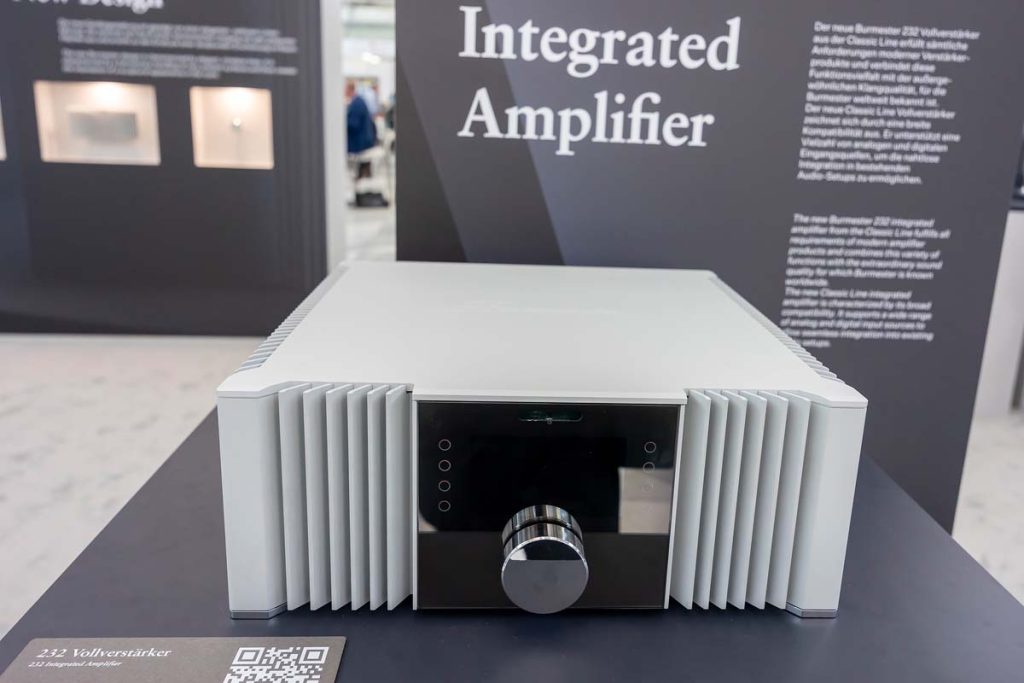












0 comments